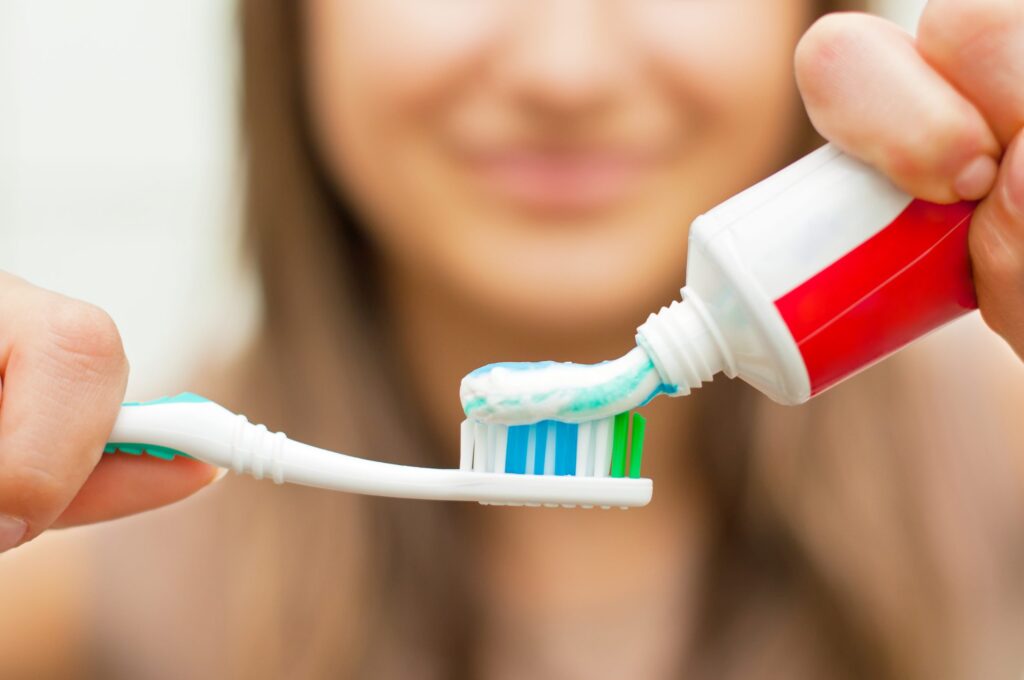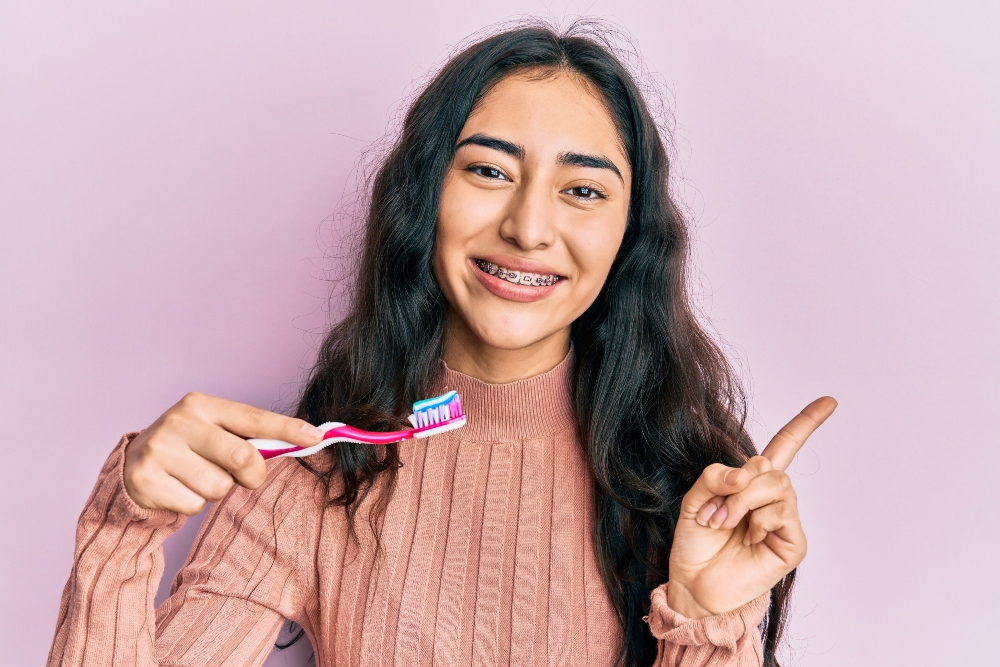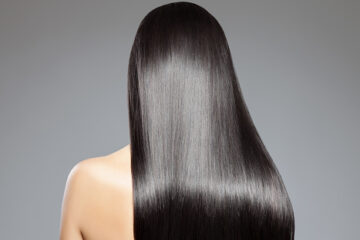Wearing braces is an important step in getting the perfect smile. However, keeping the teeth and braces clean can be a challenge. One of the essential steps in maintaining oral hygiene with braces is choosing the right toothpaste. With so many toothpaste options available in the market, it can be overwhelming to choose the best one for braces. In this article, we will discuss the best toothpaste for braces and how it can help you maintain good oral health during your orthodontic treatment.

First and foremost, it is important to understand the challenges of brushing with braces. Braces create nooks and crannies where food particles and plaque can get trapped. If these particles are not removed through regular brushing, they can cause tooth decay, gum disease, and bad breath. Moreover, the brackets and wires of braces can make it difficult to reach some areas of the teeth, making it harder to clean them thoroughly.

Choosing the right toothpaste is one of the most important steps in maintaining good oral hygiene with braces. Here are some of the best toothpaste options for braces:
Fluoride toothpaste
Fluoride is an essential ingredient for healthy teeth, as it helps to prevent tooth decay and strengthens tooth enamel. When wearing braces, it is important to choose a toothpaste that contains fluoride to help prevent decay around the brackets and wires. Fluoride toothpaste can also help to remineralize the teeth and prevent the formation of white spots, a common side effect of braces.
Tartar control toothpaste
Tartar is a hard, yellowish deposit that can form on the teeth if plaque is not removed regularly. When wearing braces, it can be difficult to remove all the plaque and food particles, which can lead to tartar buildup. Tartar control toothpaste can help to prevent the formation of tartar and keep the teeth and braces clean.
Whitening toothpaste
Many people want to keep their teeth white and bright, even when wearing braces. However, some whitening toothpaste can be abrasive and may damage the braces. It is important to choose a gentle whitening toothpaste that is safe for use with braces. Look for a toothpaste that contains hydrogen peroxide or carbamide peroxide, which are gentle whitening agents.
Sensitive toothpaste
Braces can make the teeth more sensitive, especially in the first few weeks of treatment. If you have sensitive teeth, it is important to choose a toothpaste that is specifically designed for sensitive teeth. Sensitive toothpaste can help to reduce sensitivity and make brushing more comfortable.
Orthodontic toothpaste
Finally, there are toothpaste options specifically designed for people wearing braces. Orthodontic toothpaste can help to remove plaque and food particles from around the brackets and wires, making it easier to keep the teeth and braces clean. Some orthodontic toothpaste also contain fluoride and other ingredients to promote oral health.
In addition to choosing the right toothpaste, there are some other steps you can take to maintain good oral hygiene with braces. Here are some tips:
Brush regularly
Brush your teeth at least twice a day, and ideally after every meal. Use a soft-bristled toothbrush and brush gently around the brackets and wires. Pay extra attention to the areas where food and plaque can get trapped.
Use an interdental brush
An interdental brush is a small brush that can be used to clean between the teeth and around the brackets and wires. This can help to remove any food particles or plaque that may have been missed during regular brushing.
Floss regularly
Flossing is an important step in maintaining oral hygiene with or without braces. Use a floss threader or special orthodontic floss to clean between the teeth and around the braces. Flossing can help to remove any food particles or plaque that may have been missed during regular brushing.
Use a mouthwash
Mouthwash can help to kill bacteria and freshen your breath. Look for a mouthwash that is alcohol-free and contains fluoride to help strengthen your teeth.
Visit your dentist regularly
Regular dental checkups are important to ensure that your teeth and braces are in good condition. Your dentist can check for any signs of decay or gum disease and recommend any necessary treatments.
In conclusion, choosing the right toothpaste is an essential step in maintaining good oral hygiene with braces. Fluoride toothpaste, tartar control toothpaste, whitening toothpaste, sensitive toothpaste, and orthodontic toothpaste are all good options for people wearing braces. However, it is important to also brush regularly, use an interdental brush, floss regularly, use a mouthwash, and visit your dentist regularly to ensure that your teeth and braces are in good condition. By following these steps, you can maintain good oral hygiene and get the perfect smile you’ve always wanted.
It is important to remember that even with the best toothpaste and oral hygiene routine, braces require extra care and attention. During your orthodontic treatment, it is best to avoid hard and sticky foods that can damage the braces and make it harder to keep the teeth clean. It is also important to wear a mouthguard if you play sports to protect your teeth and braces from injury.
If you experience any problems with your braces, such as broken brackets or wires, make sure to contact your orthodontist as soon as possible. Delaying treatment can result in further damage to your braces and teeth, which can extend your orthodontic treatment time.
In addition to choosing the right toothpaste and maintaining good oral hygiene, it is also important to have patience during your orthodontic treatment. The length of time needed for braces varies from person to person, but most people wear braces for one to two years. It can be tempting to rush the process, but it is important to follow your orthodontist’s instructions and attend all your scheduled appointments to ensure the best results.
In summary, maintaining good oral hygiene with braces requires choosing the right toothpaste and following a regular oral hygiene routine that includes brushing, flossing, and using mouthwash. Orthodontic treatment also requires extra care and attention, such as avoiding hard and sticky foods and wearing a mouthguard during sports. If you experience any problems with your braces, contact your orthodontist as soon as possible. By following these tips and being patient, you can achieve the perfect smile you’ve always wanted.

















